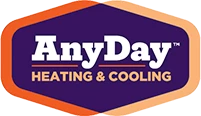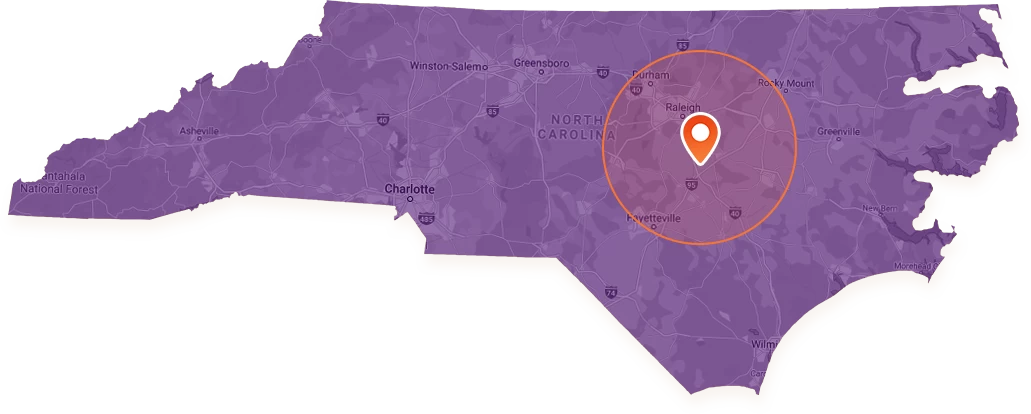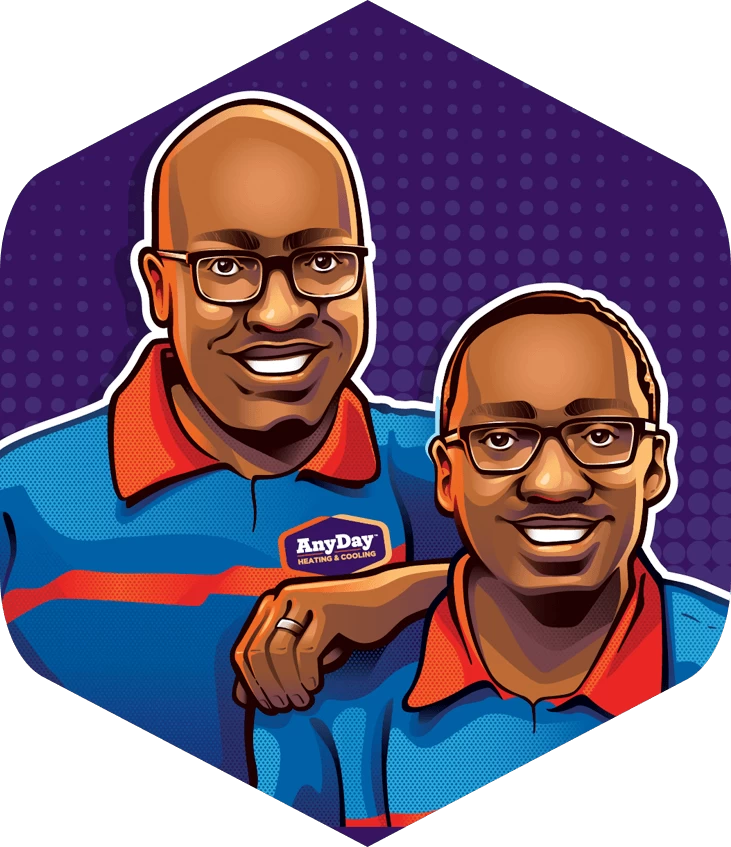Yes, after we have installed your unit, the North Carolina mechanical code requires it to be inspected by your city and/or county inspector.
-
Will my new system have to be inspected by the city/county inspection department?
-
-
What are my payment options?
-
We accept cash, check, and Mastercard or Visa payments. We can also help you with financing options. To learn more about the variety of options available to you, check out the Financing section on our website.
-
Will you remove my old equipment and dispose of it?
-
Yes, we remove all old equipment from your property and dispose of it according to local and state guidelines. This includes the freon inside your unit, as well.
-
Why does AnyDay Heating & Cooling require a 30% deposit?
-
This is a necessary step as we have to purchase the proper equipment and material before we start the job. There is a restocking fee charged to us if we must return this equipment, even if it is unused.
-
When should I consider HVAC equipment replacement?
-
The Department of Energy recommends homeowners to replace their systems every 10-15 years. Modern systems offer more efficiency than those manufactured 10+ years ago. Some other signs it’s time to replace may include if repair costs are more than half the cost of a new unit, constantly increasing energy bills, unusual smells and sounds, and others. When you’re ready for an HVAC replacement in Cary and the surrounding areas, give AnyDay Heating & Cooling a call.
-
How often should I replace or clean my filters?
-
We recommend you replace your disposable filters at least once a month. If you have washable filters, you should clean them once a month. This will help your unit run more efficiently, as well as increase the air quality in your home.
-
What time should I expect your technician to arrive on the day of service?
-
Our certified HVAC technicians start their day at 7:30 AM. They will typically arrive at your home between 8-8:30 AM. If you need an alternate time, our Sales Department can arrange one that best fits your schedule.
-
Do you use anything to protect my floors and furniture?
-
Yes, we have plastic sheeting on all of our trucks and we make every effort to leave your home as clean as it was when we arrived.
-
Is it beneficial to subscribe to an HVAC Maintenance program?
-
Absolutely. Your heating and cooling system needs regular service and maintenance to achieve peak performance. Learn more about our Service Partner Plan and how we can save you money.
-
What is Puron?
-
Puron is an environmentally friendly refrigerant and the only freon used in HVAC systems starting January 1, 2010.
-
Why can’t I just replace my outdoor unit equipment without having to replace the indoor evaporator coil?
-
The newer Puron equipment uses different freon than the old units. Mixing two types of freon will cause your new compressor to fail prematurely.
-
Can I place plants and other greenery around my outdoor unit?
-
Yes, you can have plants and bushes near your unit but you should keep 2-3 feet of clearance on each side to allow proper airflow.
-
What is SEER?
-
SEER is an abbreviation for Season Energy Efficiency Rating. This measures how efficient your HVAC unit operates. The greater your SEER rating, the more energy efficient your system will be.
-
How much will a 13 SEER A/C save me over my current system?
-
Typically, older units have a SEER rating between 8 and 10. If you install a 13 SEER A/C system, you can expect savings in the 30-40% range on your monthly bill.
-
How much money will a 90%-plus furnace save me over my current furnace?
-
Older furnaces are typically running at a 65% efficiency rate, some even less. With a 90%-plus furnace, you can expect 25% or more in savings depending on your usage and with the installation of high-efficiency equipment.
-
What is a 2-stage gas valve?
-
A 2-stage gas valve meters gas into your furnace and it has two stages; one being a high stage, the other being a low stage.
-
Should I turn my A/C off during the day when nobody is home?
-
No. We suggest you raise the temperature setting on the thermostat a few degrees. If you set it at 80-83 degrees, you will use less energy and still allow the air conditioning system to recover when you lower the thermostat to your desired comfort level. We recommend purchasing a smart or programmable thermostat.
-
Does my HVAC system have an effect on air quality?
-
Yes. We recommend installing a more efficient heating and cooling system to drastically improve the indoor air quality in your home.
-
What does HVAC stand for?
-
HVAC stands for Heating, Ventilation, and Air Conditioning.





